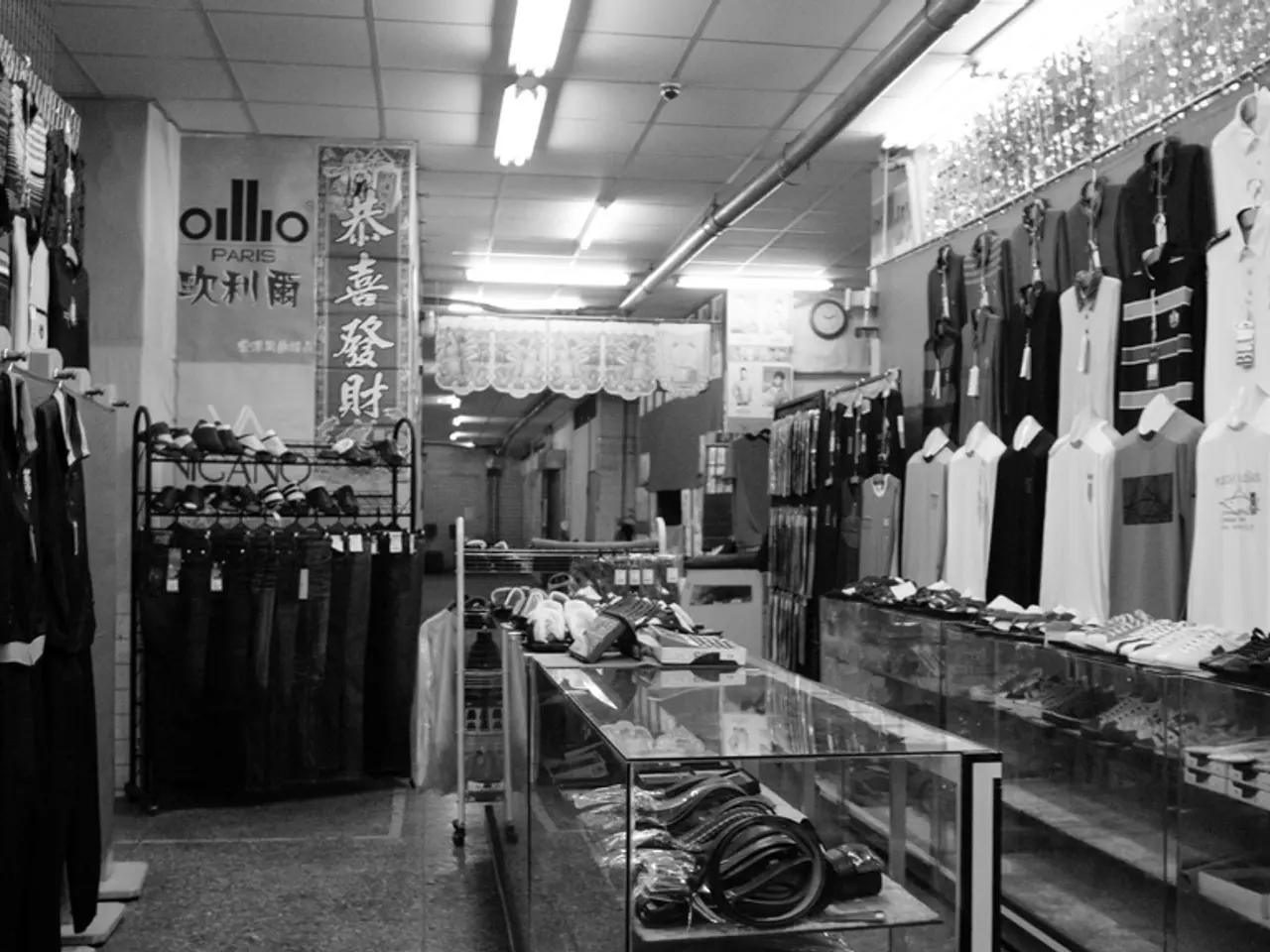Fashion Industry Business Insights
The fashion industry is experiencing a significant shift, thanks to technological advancements in areas such as Artificial Intelligence (AI), 3D printing, and blockchain technology.
Artificial Intelligence (AI) is revolutionizing the sector by enhancing trend forecasting, improving customer experience through personalized recommendations, and reducing inventory levels. AI also helps in creating 3D samples, thereby reducing unnecessary physical prototypes and costs. Moreover, AI aids designers in creating designs based on historical trends and consumer preferences.
One of the most exciting developments is the use of 3D printing. This technology allows for on-demand production, reducing waste and enabling customers to personalize their purchases. Major brands like Adidas and Nike have already adopted 3D printing for faster product development and customization.
Blockchain technology is another game-changer. It improves supply chain transparency, reduces counterfeit risks, and enables secure transactions. Luxury brands like Louis Vuitton and Dior are using blockchain to authenticate their products.
Looking ahead, these technologies are expected to further integrate into the fashion industry. AI will continue to enhance automation, design assistance, and personalized customer experiences. It will also help reduce environmental impact by streamlining production processes.
As more brands adopt 3D printing, it is likely to become a standard in the industry, offering sustainable and customizable production methods. Expect more widespread integration of blockchain for secure transactions and increased supply chain transparency across the industry.
The business of fashion is divided into several segments, including haute couture, ready-to-wear, fast fashion, luxury fashion, and streetwear, each catering to different consumer demographics and preferences. Technology will continue to be a driving force in shaping the future of the fashion industry, with virtual reality fitting rooms, artificial intelligence-driven trend forecasting, and data-driven marketing strategies.
However, the globalisation of the fashion industry also presents new challenges for companies as they navigate different cultural norms, consumer preferences, and regulatory environments. Sustainability will play an increasingly important role, leading to greater innovation in materials and production processes. The future of fashion business will be characterized by greater inclusivity and diversity as companies respond to changing consumer values and priorities.
- The integration of artificial intelligence in sustainable fashion could lead to personalized customer experiences, improved trend forecasting, and a reduction in unnecessary physical prototypes and costs.
- Streetwear brands are anticipated to benefit from the integration of technology in the fashion industry, with the potential for virtual reality fitting rooms and AI-driven trend forecasting.
- In the world of finance and business, the use of blockchain technology in the fashion industry shows promise for secure transactions, increased supply chain transparency, and reduced risks of counterfeit products.
- In education and self-development, understanding the role of technology in the fashion-and-beauty sector can lead to insights on the future of business and the importance of sustainability, global diversity, and cultural sensitivity.




